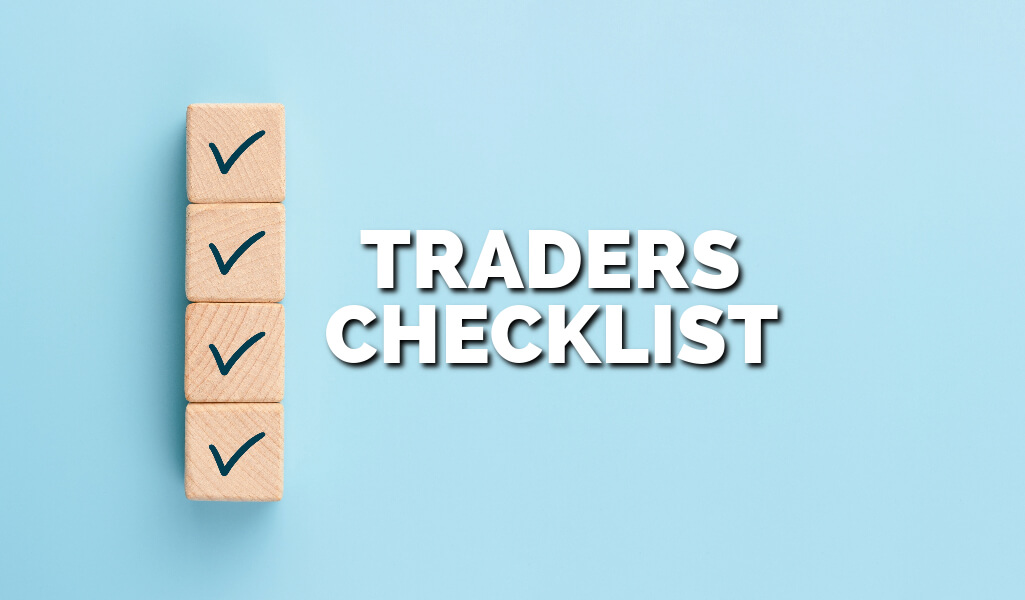
Traders checklist for easy trading: Get All The Info
Key Takeaways:
- Identify market trends and adapt your strategy accordingly for higher chances of success.
- Pay close attention to support and resistance levels to make informed trading decisions.
- Choose indicators wisely to confirm your trades without overwhelming your analysis.
- Maintain a balanced risk-reward ratio and manage capital prudently to protect your trading account.
Have you ever contemplated venturing into the dynamic world of trading, especially in today’s highly volatile markets? Do you like foreign currencies and need a trading checklist to make your trading journey easier?
More people worldwide are becoming interested in trading as a real business. They are motivated by the success of traders who have turned their passion into successful online ventures. And, at its core, what does the term “easy trading” truly entail?
Many people worldwide are getting into trading, inspired by successful traders who’ve turned their passion into profitable online businesses. They’re looking for the perfect plan to start trading and make the most profit.
Interested in finding the right checklist for your needs? Is there a universal one, and how to make it work?
It would be best to have a checklist with strategies, journaling, price levels, and adjusting to market changes to do well in trading.
Join us to explore this vital tool and learn from our Forex experts!
Why is traders checklist crucial nowadays?
Traders need a trading checklist. It helps them manage risks, choose entry and exit strategies, and prepare for a trade.
This checklist helps traders manage risk, find entry and exit points, and set trade conditions before making a trade. It also helps them to focus on managing risk. It helps them to execute trades effectively.
What do you need to know before initiating a trade?

Before initiating a trade, consider the following inquiries:
- Is the market trending or stuck in a range?
- Are there significant support or resistance levels nearby?
- Do technical indicators support the trade?
- What’s the risk-reward ratio?
- How much capital are you committing?
- Are there noteworthy economic releases that may impact the trade?
- Are you adhering to your trading plan?
Now, let’s address the first question:
- Is the Market Trending or Stuck in a Range?
Experienced traders know it’s important to find a strong trend and adjust their trades to increase their chances of success.
There’s a saying that traders can overcome less-than-ideal entry points in markets showing clear trends. Even if traders enter a trade after the trend is established, they can still profit more from downward movements than upward ones.
This aligns with analysis, risk management, and setting up trades, all crucial for successful trading.
What is critical to assess here?
So, checking if the market is clearly trending and if “trend trading” fits your trading strategy is important.
Include this assessment in your trading journal, which helps you monitor your trades and gain insights.
You should also have a profit target, indicating when to exit the trade and secure profits based on market conditions. Proper position sizing represents an essential to manage risk effectively.
What are the Ranging markets like?

When markets are stuck in a range, prices move back and forth between support and resistance levels in a defined channel. This price behaviour is particularly noticeable in markets like the Asian trading session.
Traders who engage in range trading often rely on oscillating indicators such as RSI, CCI, and Stochastic while also considering fundamental analysis.
To make informed trading decisions in this context, traders must carefully assess their trade setups and determine optimal stop-loss placement.
They analyze price charts and study price action closely to identify potential entry and exit points. This approach is crucial for success in the dynamic and ever-changing landscape of financial markets.
- Are there significant support or resistance levels nearby?
Price movement respecting certain thresholds in day trading is very important because of different factors. Day traders must be adept at identifying these key levels.
For instance, day traders would want to avoid finding themselves in a short position when the price has dropped to a significant support level, only to witness it swiftly rebound.
The case of a prominent support level in EUR/USD
Consider the case of a prominent support level in the EUR/USD currency pair, especially when day trading.
The same principle applies when the price approaches a notable resistance level, often followed by a subsequent decline.
Day traders who operate within specific time frames and closely analyze chart patterns are particularly attentive to these levels.
Employing strategic stop-loss orders

Moreover, day traders also employ strategic stop-loss orders designed to limit potential losses by triggering an automatic exit from a trade when the price moves against their position.
To succeed in day trading, it is important to understand price changes and use stop-loss orders effectively.
- Do technical indicators support the trade?
Indicators are invaluable for confirming high-probability trades, especially in forex trading.
Depending on your trading style and strategy, you’ll choose one or two indicators that align with your plan.
It’s essential not to complicate your analysis by adding multiple indicators to a single chart, keeping it clean and simple.
This approach ensures that your analysis remains straightforward and easily digestible while considering factors like interest rates that can impact forex trading.
- What’s the risk-reward ratio?
The risk-to-reward ratio assesses what traders are willing to risk to achieve their target, a key component of a trader’s checklist.
Our research, analyzing over 30 million live trades, found that traders with a positive ratio were almost three times more likely to be profitable, whether in a long position or not.
For instance, a 1:2 ratio means risking half the potential gain if the trade succeeds. You can see this concept in the image below:
- How much capital are you committing?
Traders must always consider this question when buying and selling. Many traders lose their accounts by overusing leverage to pursue “surefire” opportunities. It’s wise to keep leverage at or below ten to one for all trades to prevent this.

Another useful strategy is to set stop-loss orders for every trade and ensure the total risk doesn’t exceed 5% of the account balance.
Before making a trade, ask yourself, “How much of my capital should I invest in buying or selling?”
- Are there noteworthy economic releases that may impact the trade?
Unexpected market news can disrupt even the most “perfect” trade. While it’s nearly impossible to predict events like terrorist acts, natural disasters, or major financial system failures, traders can prepare for economic updates like NFP, CPI, PMI, and GDP releases.
Plan by checking our economic calendar, highlighting significant economic updates from major trading nations.
- Are you adhering to your trading plan?
All the above information is valuable only when it aligns with your trading strategy. Straying from your trading plan can lead to inconsistent results and add frustration to the trading process.
Stick to your perfect trading plan, and only execute trades when your trading checklist has been completed and confirms that the trade is viable.
Bottom line
Trading success hinges on a well-crafted checklist. It helps manage risks, seize opportunities, and stay disciplined. Are you ready to trade with confidence?




